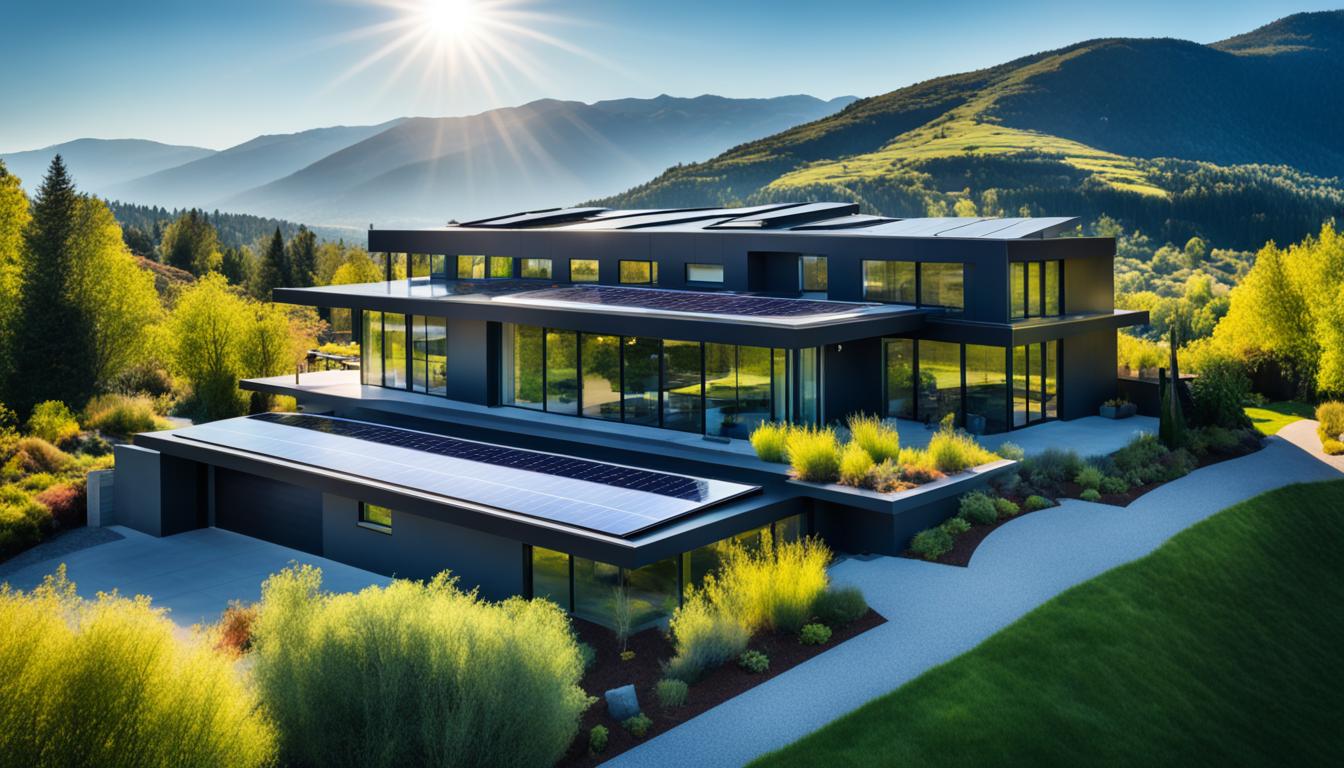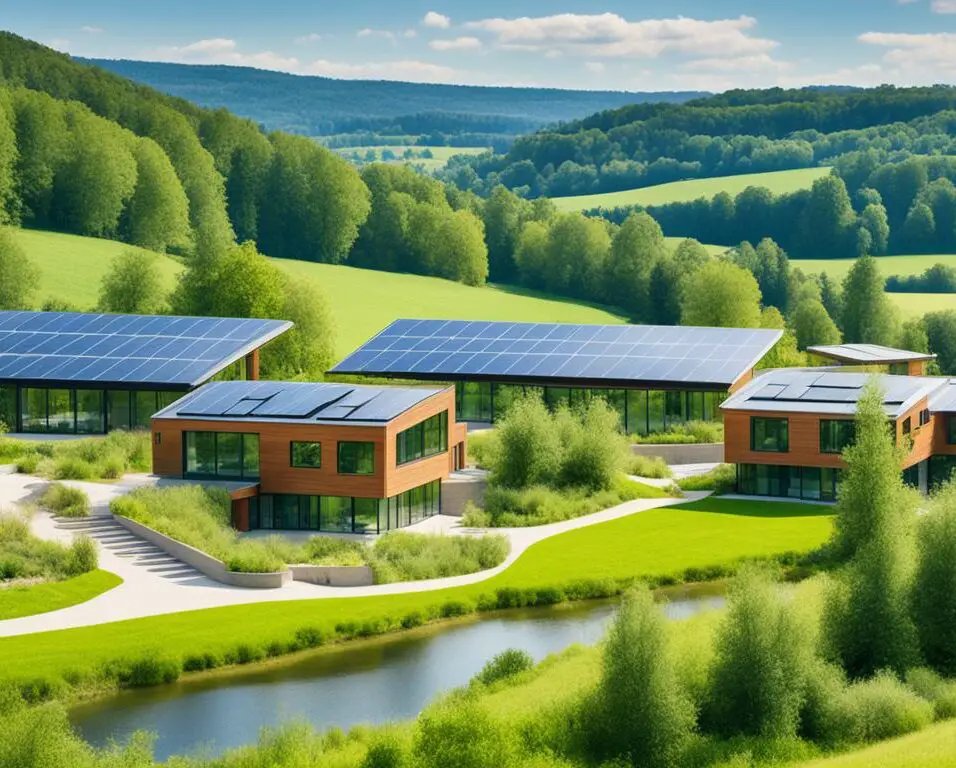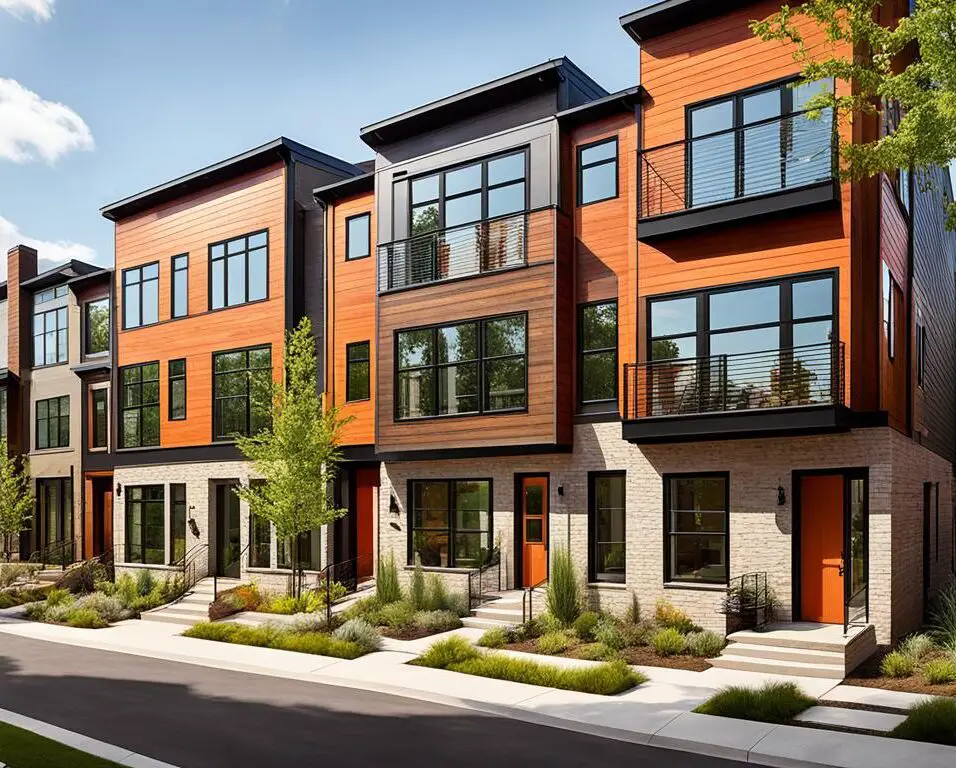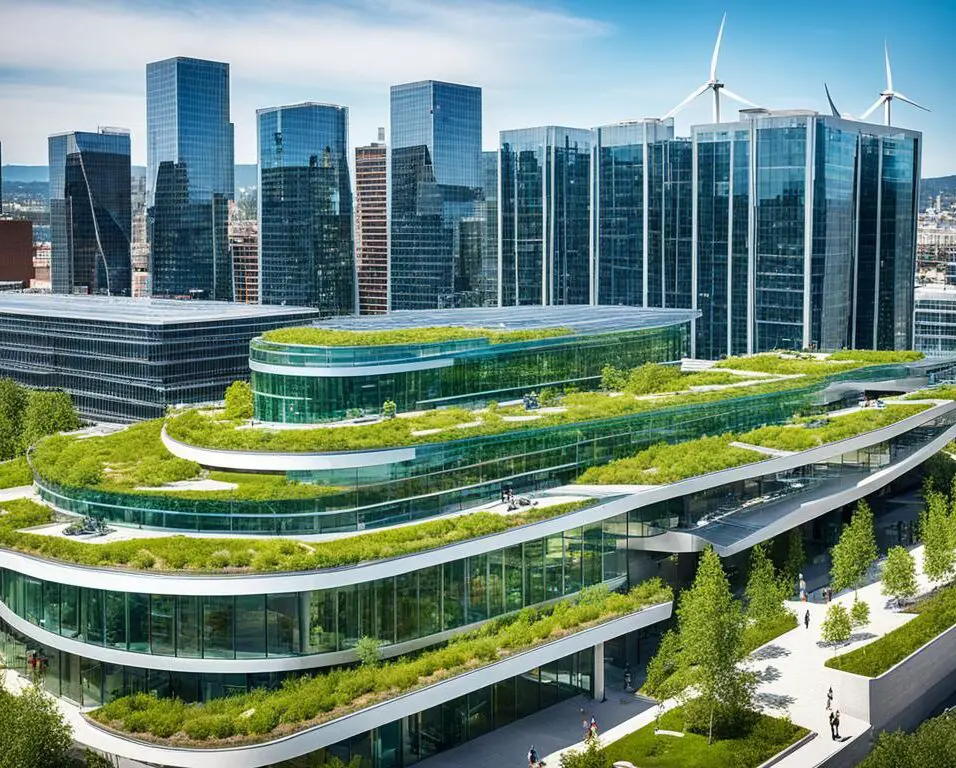Solar Panel Roofing: The Future of Eco-Friendly Homes
As an environmentally conscious homeowner, I’m constantly searching for ways to reduce my carbon footprint and make my home more sustainable. That’s why I’ve been intrigued by the rise of solar panel roofing as a viable solution for energy-efficient homes.
Solar panel roofing harnesses the power of the sun and converts it into clean, renewable energy. By installing solar panels on the roof, homeowners like myself can generate electricity for our homes and even contribute excess power back to the grid. Not only does this reduce reliance on fossil fuels, but it also leads to significant savings on energy costs in the long run.
What I find particularly exciting about solar panel roofing is its potential to revolutionize the way we power our homes. With advancements in technology, solar panels have become more efficient and affordable, making them a practical choice for homeowners looking to embrace sustainability. Additionally, solar panel roofing integrates seamlessly into the overall design of a home, enhancing its aesthetic appeal while providing a practical and eco-friendly solution.
When considering solar panel roofing, it’s important to evaluate factors such as the geographical location, available sunlight, and roof orientation. It’s also crucial to work with reputable and experienced solar panel installers who can guide homeowners through the process and ensure a seamless integration into their homes.
Key Takeaways
- Solar panel roofing offers a sustainable and efficient way to power homes while reducing carbon footprint.
- Advancements in technology have made solar panels more efficient and affordable.
- Installing solar panels on the roof can lead to long-term savings on energy costs.
- Geographical location, available sunlight, and roof orientation should be considered when evaluating solar panel roofing.
- Working with reputable installers ensures a smooth integration of solar panels into homes.
The Greenpower Park Project: Leading the Transition to Clean Energy
Greenpower Park, located in the UK, is at the forefront of driving the transition to clean energy and sustainable manufacturing practices. With the goal of becoming the epicenter of the green industrial revolution, the park focuses on fostering collaborations between industry, academic institutions, and stakeholders to create an end-to-end electrification and clean energy ecosystem.
At the heart of Greenpower Park is the West Midlands Gigafactory, which serves as the anchor tenant. This state-of-the-art facility has approved plans for a large-scale battery production unit with a capacity to power 600,000 electric vehicles. Battery production plays a pivotal role in the electrification of transportation, and Greenpower Park aims to position the UK as a leader in this crucial clean energy technology.
The project is expected to attract £2.5 billion in inward investment, stimulate economic growth, and create 6,000 highly skilled jobs. By establishing a sustainable manufacturing ecosystem, Greenpower Park strives to contribute to long-term environmental sustainability while driving economic prosperity.
Key Features of Greenpower Park:
- Collaboration between industry, academic institutions, and stakeholders.
- West Midlands Gigafactory as the anchor tenant.
- Approved plans for a large-scale battery production facility.
- Capacity to power 600,000 electric vehicles.
- Expected £2.5 billion inward investment.
- Creation of 6,000 highly skilled jobs.
Greenpower Park not only represents a significant step forward in electrification and clean energy efforts, but it also paves the way for sustainable manufacturing practices. By integrating renewable energy technologies, such as battery production, into the existing industrial landscape, the UK can position itself as a leader in the global transition to a more sustainable future.
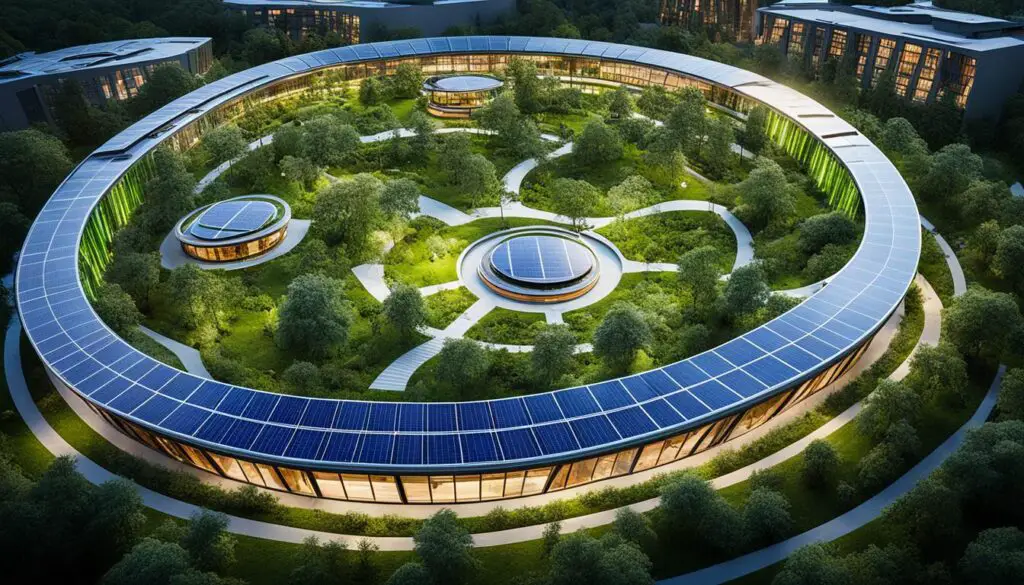
As Greenpower Park continues to develop and evolve, its impact on the clean energy sector and sustainable manufacturing practices will undoubtedly shape the future. By embracing electrification and investing in battery production infrastructure, Greenpower Park is driving the transition to clean energy and playing a crucial role in creating a more sustainable world.
Rainfall Patterns in Lagos: Implications for Solar Panel Roofing
The rainfall forecast for Lagos in 2024 reveals an unusual precipitation pattern, with a predicted total of 1936.2 mm of rainfall. This forecast has significant implications for solar panel roofing, as it highlights the importance of harnessing and utilizing this renewable resource.
Commissioner Tokunbo Wahab emphasized the significance of the forecast in a recent statement, stating, “Understanding the rainfall patterns allows us to tap into a valuable resource and contribute to eco-friendly living in Lagos.”
To further optimize the benefits of solar panel roofing, Commissioner Wahab outlined specific onset and cessation dates for various regions within Lagos. By aligning installation and maintenance practices with these dates, homeowners can take advantage of peak rainfall periods, maximizing energy generation and promoting a more sustainable way of living.
Meeting the Demand for Renewable Energy
The growing focus on eco-friendly living and sustainability has sparked increased interest in solar panel roofing in Lagos. As the city experiences shifts in rainfall patterns, individuals and businesses alike are recognizing the opportunity to utilize this abundant renewable resource.
Implementing solar panel roofing not only reduces reliance on traditional energy sources but also helps mitigate the environmental impact associated with carbon emissions.
“Harnessing the power of the sun through solar panel roofing aligns with our commitment to reducing our carbon footprint and transitioning to a greener, more sustainable future,” said Adeola Williams, an environmental advocate in Lagos.
By embracing solar panel technology, Lagos residents can contribute to the local and global effort to combat climate change and promote a cleaner, more resilient environment for future generations.
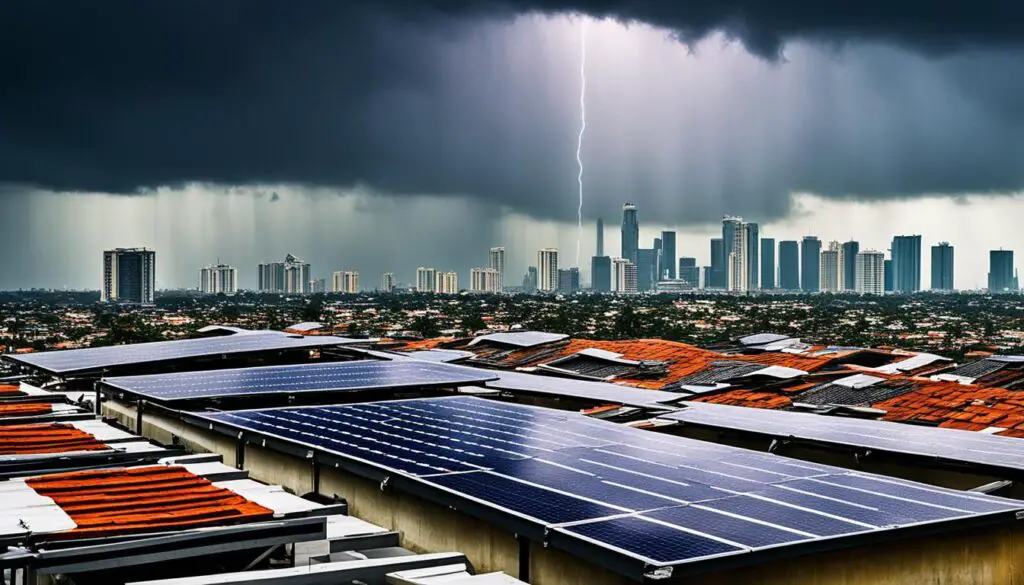
The Economic Benefits of Solar Panel Roofing
In addition to the environmental advantages, the adoption of solar panel roofing in Lagos offers various economic benefits. By generating electricity from sunlight, homeowners and businesses can significantly reduce their energy bills and achieve long-term cost savings.
As the price of traditional energy sources continues to fluctuate, embracing solar power provides a stable and reliable alternative. Solar panel installations in residential and commercial properties not only increase the value of the buildings but also showcase a commitment to sustainable practices, attracting environmentally conscious consumers.
“Investing in solar panel roofing is not only an eco-friendly choice but also a smart financial decision,” said Oladimeji Ajala, a sustainable energy consultant.
In addition, the growing solar industry in Lagos creates job opportunities in sectors such as manufacturing, installation, and maintenance, contributing to the local economy and fostering a skilled workforce.
| Region | Onset Date (mm/dd/yyyy) | Cessation Date (mm/dd/yyyy) |
|---|---|---|
| Mainland | 05/20/2024 | 10/15/2024 |
| Island | 06/05/2024 | 09/30/2024 |
| Suburbs | 05/30/2024 | 10/10/2024 |
The table above displays the specific onset and cessation dates for rainfall in different regions of Lagos in 2024. By aligning solar panel installations and maintenance activities with these dates, homeowners can optimize their systems for maximum efficiency.
Conclusion: The Transformative Power of Solar Panel Roofing
As the world increasingly prioritizes sustainability and energy efficiency, solar panel roofing is emerging as a key technology for the future of eco-friendly homes. With its ability to harness the power of the sun and convert it into clean, renewable energy, solar panel roofing offers a sustainable and efficient solution for homeowners.
One notable example is the Greenpower Park project in the UK, which serves as a testament to the potential of solar panel roofing in driving the transition to clean energy. By bringing together industry, academic institutions, and stakeholders, Greenpower Park is creating an ecosystem that promotes not only the use of solar panel roofing but also sustainable manufacturing practices.
Furthermore, understanding rainfall patterns, as seen in Lagos, can play a crucial role in optimizing solar panel installation and utilization. By leveraging the forecasted precipitation data, homeowners can effectively harness this renewable resource and maximize energy generation.
With these advancements in technology and the growing awareness of the benefits of solar panel roofing, it is clear that this innovation has the potential to revolutionize the way we power our homes and pave the way for a greener, more sustainable future.



